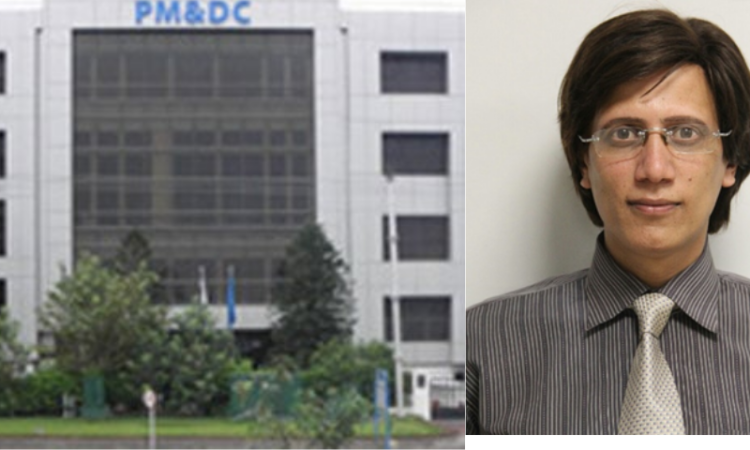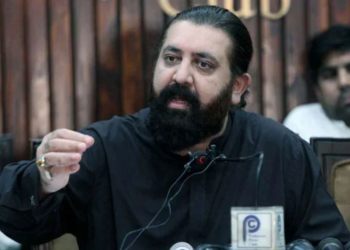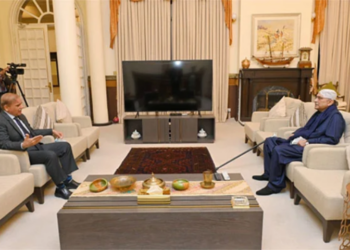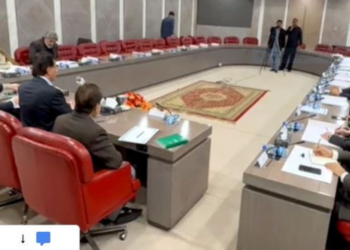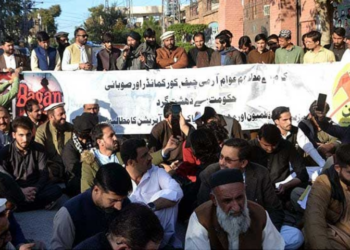Imran Ali Ghouri
The Pakistan Medical and Dental Colleges Admission Test (MDCAT) has long been a rite of passage for students aspiring to enter medical and dental colleges across Pakistan. However, the 2024 iteration of the exam has become embroiled in controversy, frustrating students, parents, and educational stakeholders. What was supposed to be a simple and necessary procedure to select the best candidates has turned into a tumultuous saga, leaving aspiring medical professionals grappling with uncertainty and a sense of injustice.
The controversy began in late September 2024, when the MDCAT test, initially conducted on September 22, was marred by serious complaints regarding its fairness, transparency, and difficulty levels. Students reported discrepancies in the difficulty of the test across different regions, with some candidates alleging that the exam was unexpectedly harder than in previous years. The Pakistan Medical and Dental Council (PMDC), in response, found itself under intense scrutiny, with many questioning the integrity and consistency of the entire exam process.
A total of around 170,000 candidates, of which around 22,000 were from Islamabad, competed for 17,615 MBBS seats and 3,837 BDS seats across the country. Those who passed the exam in flying colors are the most hurt ones as they are feeling jilted due to the unfortune controversy.
In an effort to restore credibility and standardize the examination, the PMDC announced that it would take a more proactive approach for future tests. To achieve this, the PMDC has partnered with the Inter-Boards Coordination Commission (IBCC) and the Higher Education Commission (HEC) to prepare a standardized question bank for future exams.
This decision, while a step in the right direction, has not been without its complications. The already fraught process of rescheduling the exam saw yet another delay, this time due to the political unrest that has gripped the country. The latest setback on November 24, 2024, pushed back the exam once again, as security concerns and turmoil surrounding the federal capital, Islamabad, made it impossible to hold the test on schedule.
This series of delays and controversies has left thousands of aspiring medical students in a state of limbo, and the effects on their mental and emotional well-being cannot be overstated. The uncertainty surrounding the MDCAT has caused widespread frustration and a sense of disillusionment among students who had already invested months of preparation, time, and resources in anticipation of this exam. Many now feel that the system has failed them, leaving them with little faith in the future of medical education in the country.
At its core, the MDCAT issue highlights a deeper, systemic problem in Pakistan’s education infrastructure. A lack of coordination, poor planning, and the absence of a consistent standard have all contributed to a confused environment that leaves students vulnerable. This uncertainty is not just disheartening—it is damaging.
The importance of standardizing the MDCAT process is super required. It is crucial for Pakistan’s educational policymakers to prioritize long-term planning and stability. If a country’s educational system is to be competitive globally, it must first stabilize at home.
One potential solution to the ongoing confusion is granting greater autonomy to medical universities and colleges in conducting their own entry tests. This would allow institutions to tailor the exams to their specific curricula and maintain consistency in their selection process. Universities could coordinate with the PMDC to ensure a minimum standard, while being given the flexibility to adapt the exam format and content to their needs. This decentralization could help alleviate the pressure on the national system, reduce administrative delays, and ensure that entry tests reflect the true capabilities of the candidates. Without such standardization, we risk creating a generation of disillusioned students who may lose faith in the meritocracy that higher education is supposed to uphold.
Moreover, the continuous delays and political interference in the MDCAT have significantly damaged the image of Pakistan’s medical education system on the global stage. In an era where countries are competing to build world-class institutions and attract international students, Pakistan’s inability to conduct a simple entrance test without controversy only weakens its position. Potential international collaborations, foreign students, and investments in education are unlikely to materialize if Pakistan’s education system continues to be seen as unreliable, inconsistent, and chaotic. In conclusion, the MDCAT controversy of 2024 serves as a stark reminder of the challenges that Pakistan’s education system faces. What began as a simple admission test spirals into a crisis every year, undermining both the hopes of aspiring doctors and the reputation of the nation’s educational framework. While the PMDC’s efforts to standardize the exam and create a more reliable system are welcome, they must be accompanied by broader reforms that ensure the system remains unaffected by political turmoil and external pressures. Only then Pakistan’s medical education system—and its students— will have a chance to thrive.
(Author is Head of Communication at Islamabad Medical & Dental College)



